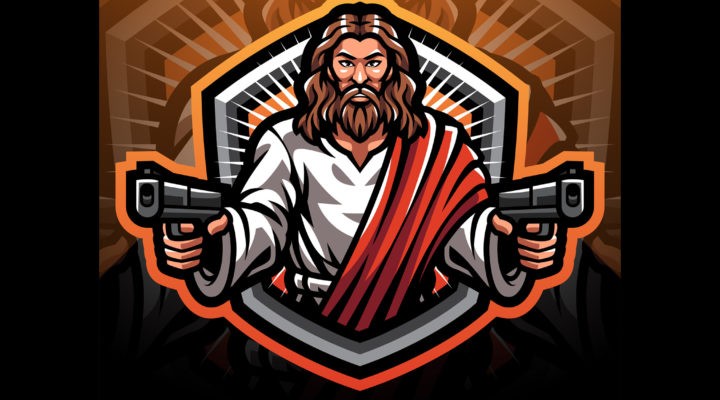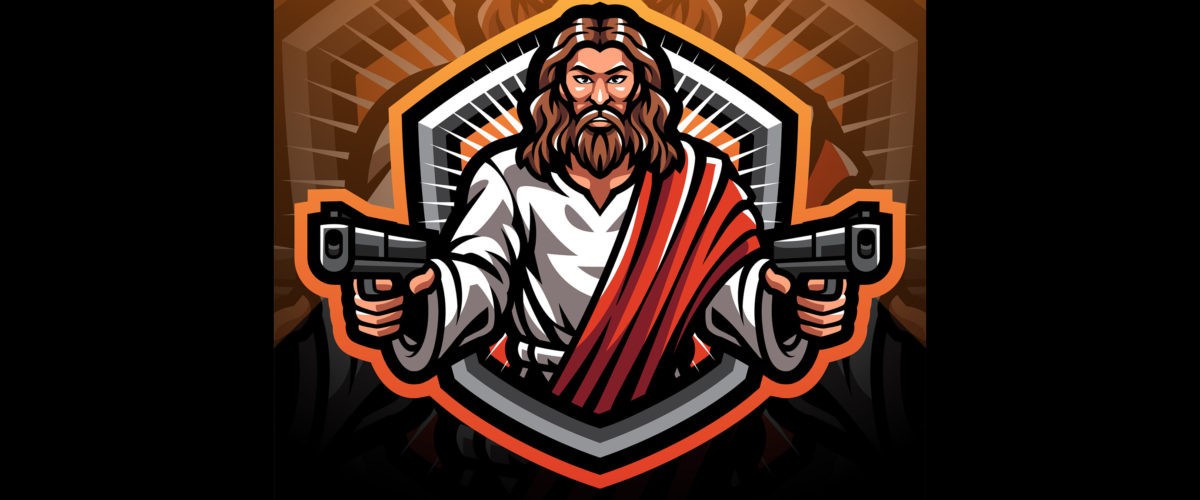I’m a gun owner and a recreational sportsman. I used to believe in the NRA hype about “good guys with guns” being the heroes America needs and being crucial as protectors of the innocent.
Over the past several years, my views have so profoundly changed that I’m fully convinced that lethal self-defense is antithetical to Christ. I consider the NRA to be one of America’s leading enemies and one of the world’s foremost purveyors of death culture and the myth of redemptive violence.
How does my church deal with issues of violence and guns and self-defense? It goes far beyond the common or typical negligence of failing to engage the issue.

Keith Hovey
I worked with one of my pastors in a rough part of town where he had purchased a rental property. Upon arriving, I noticed he was wearing a Glock in an exposed holster. Admiring the gun but perplexed by the display, I asked him why he was wearing it openly instead of concealed. He responded, “Because I want to send a message!”
I was so dumbstruck by his response that I could hardly think about anything else for two weeks.
It wasn’t just a rogue pastor; my church as an institution doesn’t seem to consider gun violence to be a problem. I never heard a sermon, or even part of a sermon, discussing guns or gun violence. Not even a mention of the broader trend of violence being baptized as “self-defense” by my church’s exact demographic: white evangelical Christians.
Gun-owning congregants are not asked to leave their guns at home. Congregants who feel unsafe around guns are not warned that this church not only allows guns to be carried in the service but even sanctions it.
My church has a “safety team” on which several of the members — including the leader — are concealing guns and ready to quickly administer lethal force in a crisis situation. Having done some honest analysis about how guns actually function in a crisis situation (conclusion: they’re a chaos-factor) I began to feel much less safe at my church. Guns do not promote safety.
“My church as an institution doesn’t seem to consider gun violence to be a problem.”
My own feeling unsafe is a minor discomfort, though. Much more importantly, I started to wonder about the safety of congregants who might be prone to erratic or violent outbursts. Were all these “safety team” members actually capable of quickly discerning whether lethal force was necessary in the heat of a crisis situation? (Nobody is; that’s simply beyond human capacity.) And if they made the wrong decision, would someone who needed to be tackled get shot and killed instead?
If someone unarmed rushed the pastor, would the guys who were tasked with protection really have the composure to resist grabbing their guns and ending that person’s life? Based on my understanding of basic human psychology, I have some doubts. In a crisis situation, everyone grabs the gun. That’s the reason I stopped carrying a gun; I know I am not above basic human nature.
Guns became the first of a few issues telling me that my church has a theology of death, a framework that considers death an issue to be overlooked in the advancement of an otherworldly gospel or the advancement of my church’s kingdom. But it wouldn’t be the last example, and eventually my church’s ambivalence about death would become the final reason I couldn’t bear to go back.
Keith Hovey is a former pastor, worship leader and youth pastor who lives in Grand Rapids, Mich. He earned a bachelor of science degree in Bible and Theology. This column is adapted from a 10-part series he wrote on why he is leaving his church.
Related articles:
While we’re talking about guns in America, let’s talk about our fear-based theology that also drives gun sales | Opinion by Rick Pidcock
Seeing gun violence as a pro-life issue | Opinion by Shane Claiborne and Michael Martin


